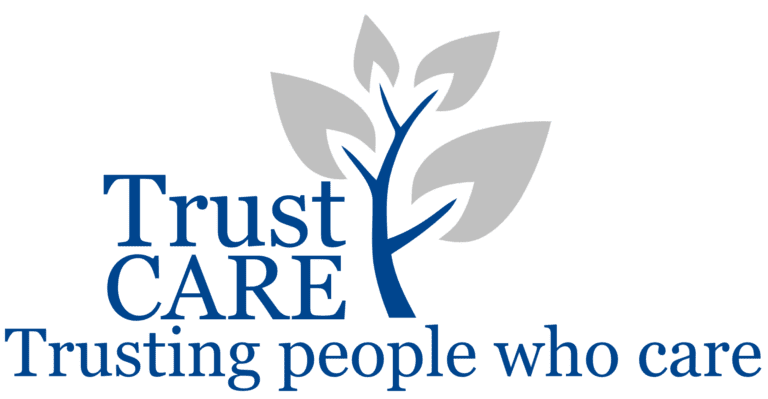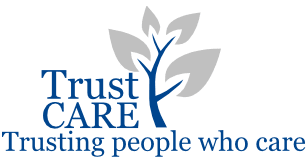Our Approach To Care For Adults
‘The Hybrid Model’

Trust Care Management is steadfast in its commitment to delivering care that is centered around the person, recognising the unique identity and circumstances of everyone we support. We integrate a range of models and methods to cater to the diverse expertise within our team, which includes both emerging and seasoned care workers and nurses from various cultural backgrounds. This inclusive approach has prompted us to dynamically redefine roles to ensure optimal use of our resources, particularly during staff shortages and the challenges presented by the pandemic.
In line with the CQC’s “Right Care, Right Support, Right Culture” guidance we have enabled Health Care Assistants to carry out designated nursing tasks under the supervision of registered nurses, thereby expanding their skill set within our care homes. This empowerment has led to the promotion of some Health Care Assistants to unit manager positions, in recognition of their leadership and clinical competencies.
Our hybrid model, which is applied within our registered care homes, is designed to address the varied skills and staffing requirements, as well as the personal needs of our service users. It upholds a high standard of care and incorporates a customised version of the Roper-Logan-Tierney Model of Nursing, enriched with elements from Functional, Team, Total Care, and Primary Care models. This blend ensures a balance between task-focused and person-focused care.
Team nursing offers a robust structure for our less experienced staff to enhance their skills in a supportive environment. We also embrace Dorothy Orem’s self-care deficit theory, which encourages activities that individuals can undertake independently to maintain life, health, and well-being. This theory, along with the core principles of nursing
- Person,
- Environment,
- Health, and nursing
has significantly shaped our organisational culture and attitudes, fostering a person-centered care ethos.
Moreover, we incorporate Florence Nightingale’s environmental theory, which emphasises the importance of optimising the persons environment to support their recovery. This principle has been particularly valuable during the pandemic and is thoroughly embraced by our staff across all roles.
Scientific evidence supports the effectiveness of person-centered care, demonstrating that such interventions can lead to improved outcomes and reduced costs of care. By integrating various approaches and theories, we ensure that the individual is at the heart of our service delivery, focusing on their needs rather than their condition or disability. Our holistic and integrated approach inspires individuals to pursue their goals, with care tailored to their specific needs.
Guiding Principles of Our Care:
- Empowerment and Autonomy:We enable service users to take an active role in decision-making about their lives.
- Diversity and Respect:We value each person’s life experience, age, gender, culture, heritage, language, beliefs, identity, and sexual orientation.
- Flexibility in Service:We offer flexible services that respond to the individual’s preferences and priorities.
- Strength-Based Approach:We concentrate on the individual’s strengths, acknowledging their expertise in their own lives.
- Inclusive Support Networks:We engage the individual’s support networks as collaborative partners when appropriate.
Our in-house training, particularly during the induction phase, is structured to connect theoretical knowledge with practical application. We inspire our entire workforce to internalise and comprehend our hybrid approach to care delivery, ensuring that our care not only meets needs but also enhances lives through a comprehensive, person-centered model.

At Trust Care Management, we are deeply committed to a model of care that places the individual at the forefront, respecting and celebrating their unique identity and life circumstances. Our approach is firmly rooted in the principles of the CQC’s “Right Care, Right Support, Right Culture” guidance, which emphasises a model of care that maximises people’s choice, control, and independence. We strive to create an environment where care is person-centered, promoting dignity, privacy, and human rights, and where the ethos, values, attitudes, and behaviours of our leaders and support staff empower those we serve to lead confident, inclusive, and empowered lives.
Our diverse team of support workers is equipped with a variety of models and methods to meet the distinct needs of our service users, reflecting our commitment to inclusivity and excellence in care. This approach has led us to dynamically adapt roles to ensure optimal use of our resources, particularly during staff shortages and the challenges brought by the pandemic.
Our hybrid model is designed to address the varied skills and staffing requirements, as well as the personal needs of our service users. It incorporates evidence-based practices and theoretical frameworks that are scientifically proven to be effective in supporting individuals with learning disabilities and autism.
We embrace a holistic approach that integrates various care theories, including the Roper-Logan-Tierney Model of Nursing and Dorothy Orem’s self-care deficit theory, to provide a robust structure for care that is both task-focused and person-focused. Additionally, we draw upon Florence Nightingale’s environmental theory to optimise the environment of those we support, enhancing their well-being and recovery.
Our guiding principles of care are centered around:
- Empowerment and Autonomy:Facilitating active participation in decision-making about one’s life.
- Diversity and Respect:Valuing each person’s life experience, age, gender, culture, heritage, language, beliefs, identity, and sexual orientation.
- Flexibility in Service:Offering services that are responsive to the individual’s preferences and priorities.
- Strength-Based Approach:Focusing on the individual’s strengths and recognising their expertise in their own lives.
- Inclusive Support Networks:Engaging with the individual’s support networks as collaborative partners when appropriate.
Through our in-house training, including the Oliver McGowan mandatory training in autism and learning disability, we ensure that our workforce is well-versed in these principles and the practical application of our care philosophy. Our aim is to not only meet the needs of those we support but to enhance their lives through a comprehensive, person-centered model of care.




